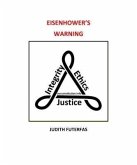Private life is in mortal danger, following decades in which it has been relinquished and ransacked. It is threatened by a three-headed monster: state and corporate surveillance, a confessional, 'tell-all' culture that makes people complicit in the invasion of their own privacy, and the intense politicization of private life.
Tiffany Jenkins's groundbreaking book traces the emergence of private sanctuaries from authority and public opinion to show that private life is a very recent - and hard-won - achievement. It also warns that, if we're not careful, it will be a temporary one.
Strangers and Intimates is animated by dramatic human confrontations: from the political struggles in the seventeenth century that led to Edmund Coke's rallying cry that 'an Englishman's home is his castle'; to the first modern privacy panic in 1844, when the British government opened private letters sent to the exiled Italian republican Giuseppe Mazzini; and from the embrace by the public of reality TV to the Chinese government's social credit system.
A private life is a precious, sustaining resource that is of profound intrinsic value, and it must be defended. We won't know what we have lost until it has gone . . .
Dieser Download kann aus rechtlichen Gründen nur mit Rechnungsadresse in A, B, BG, CY, CZ, D, DK, EW, E, FIN, F, GR, HR, H, IRL, I, LT, L, LR, M, NL, PL, P, R, S, SLO, SK ausgeliefert werden.









